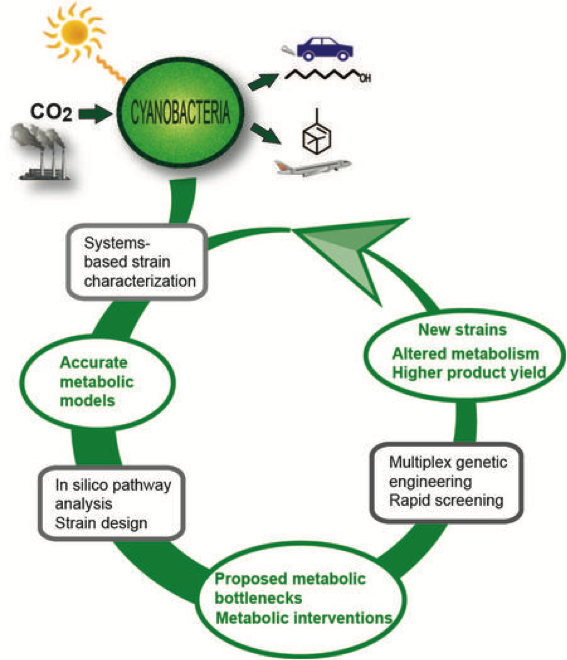Hudson Group
Research in our group relates to the metabolism of CO2-fixing bacteria, with the objective to engineer these bacteria to produce useful chemicals or fuels.
The focus is on the photosynthetic cyanobacteria (Synechocystis), but we also study the lithoautotrophic (H2-utilization) bacteria Ralstonia. CO2-fixing bacteria are of interest for industrial biotechnology, since they can use sunlight as renewable energy source. Autotrophic bacteria present an interesting engineering problem, since their energy source (e.g. light or hydrogen) is separate from the carbon source. This means that some metabolic engineering strategies may not work in these bacteria, and new strategies are needed.
The strains are studied using systems biology, such as shotgun proteomics, ribosome profiling, and transcriptomics, collect in-house using multiplex bioreactor cultivations and the DNA-sequencing and LC/MS infrastructure at SciLifeLab. To metabolic engineering is performed using genome editing, such as CRISPR/Cas. These datasets are integrated into models of metabolism that can be used to predict the effect of gene deletions.
You can find more about our group at this link.

